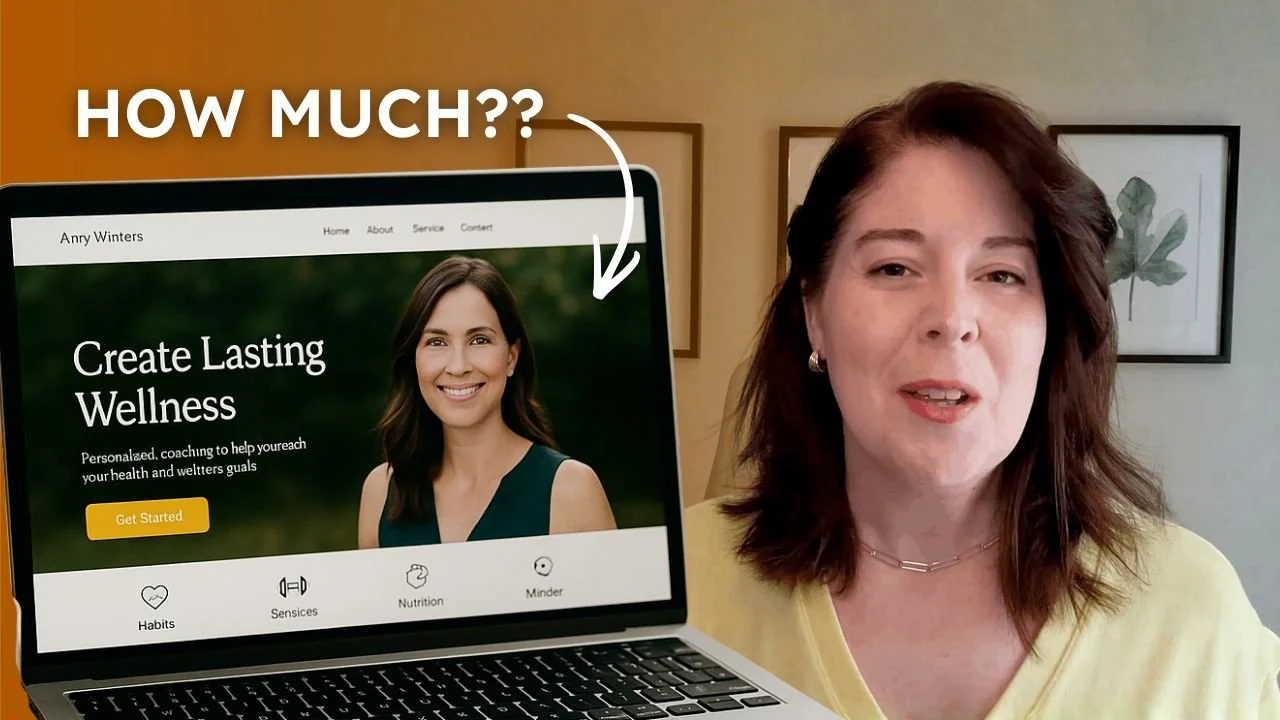Simple Steps to Get Your Local Business to Show Up on Google Search
Hey there, fellow local business owner! I know how it feels to pour your heart and soul into creating a stunning website, only then to wonder, “Why isn’t my masterpiece showing up on Google?” Don’t worry, we’ve all been there, and it’s not as daunting as it seems. The solution is SEO. So, let’s get into the nitty-gritty of what SEO is and how you can use it to your advantage.
Table of Contents
What is SEO?
SEO, or Search Engine Optimization, is like the secret sauce of the internet. It’s a set of strategies and techniques designed to boost your website’s visibility when people search for products or services related to your business on search engines like Google. It’s all about making your website pages or blog articles rank higher on search engine results pages (SERPs). In short, SEO work helps your website appear in the top search results, making it easier for potential customers to find you. The main goal is to increase the free (i.e. “organic”) traffic to your site by improving its relevance and authority in the eyes of ‘The Google’.
Generally, most SEO info/advice online doesn’t address strategies for local targeting. They may focus on audiences that don’t care about where you are, but just want an answer. Like… “How to teach my kid to tie her shoe?” Or, they may want to rank for a national or international audience asking “Best places to visit in Mexico” for example. The SEO strategies used to rank for this are different from helping local customers find local products/services.
When it comes to local SEO, it’s a sub-category of SEO focussed on optimizing your online presence for local searches. As businesses serving local clientele with our products and services… This matters! With local SEO strategies, the idea is to boost your visibility in local search results, online maps, and local directories.
Why Do I Care About SEO?
What do you do when you need a solution to a problem? You Google it, right? So does everyone else.
Imagine throwing a fabulous party but forgetting to send out the invites. That’s what it’s like having a website without SEO. It doesn’t matter how great your site is if people can’t find it. And in the digital world, search rankings equates to more website visitors, more potential customers, and ultimately, more business. So, in essence, SEO is your digital invitation to your website party!
Keep in mind, getting to the #1 on Google is not the point. Getting sales/leads is the point. If you’re nabbing the leads and sales you’re after at lower SERP rank than #1, you still win.
Not sure SEO is for you? At the end of the day, SEO is just one of many potential marketing strategies for your business. You don’t HAVE to use it if you are getting results via other channels. (Example; You have a loyal customer base, your clientele already knows where to find you, loves your products, or learns about you from word of mouth exclusively.) Although, that doesn’t mean you can ignore your online presence altogether. IMO you’d be harming your brand and reputation to neglect putting in the effort to at least cover the basics! I mean, it IS 2024. People google everything.
I’ve Just Published My Website, Why Aren’t I Showing Up on Google?
Here’s the thing: Google is kind of like that discerning art critic. It can’t just take your word for it that your site is the Picasso of websites. It needs to see it for itself.
Google uses complex algorithms to analyze websites and determine their relevance to a user’s search. So, if you’ve just hit publish on your website, it will take some time for Google to index it and determine its relevance. (Annoyingly, brand new websites take about 6-12 months to start ranking, as google indexes, crawls, go over everything.) (More on How Long It Takes For SEO To Start Working)
There are a couple factors to consider here:
SEO takes time to build. You are building a reputation… if search engines are going to serve up your website to their precious users, they need to know you’re offering the best result to answer their questions and solve their problems. Just like you would, “the Google” serves up results that have a proven track record. The good news is, over time (and with effort) you can build authority and trust with Google and climb higher in the SERP results. If you need to build customers and sales fast, this is not the strategy to start with.
SEO is an ongoing thing. Updating your site with new content, keeping it fast, and making sure the pages/content are structured correctly. This can be achieved with the right resources… i.e. your money to pay someone to do it or your time/effort to learn and DIY it – you pick.
It’s not just about what’s on YOUR website. How you show up elsewhere on the web – directories, other people’s websites, also contribute to your SERP rank. If it’s not consistent, the search engines don’t trust it.
SEO as a marketing strategy is highly competitive. As I’m sure you can appreciate, everyone wants to show up on page 1 of Google and win “free business”. AND those who were here before you have been building a reputation for longer than you. You can outrank them, but you have to get in the game and play, like everyone else.
What Steps Do I Need to Take to Improve My Website’s Rank on Search?
Don’t fret, with the right SEO strategies, we can give Google a gentle nudge in the right direction.
1. Keyword Research:
This is all about finding out what terms your potential customers are searching for. Once you know this, you can optimize your website with these keywords.
To get you started, decide on the 6-10 searches (keywords) you want to rank for. Beyond listing out the core searches you expect your customers to type into a search bar, here are some ideas to consider:
Local Keywords: Incorporate city/region-specific keywords relevant to your business and consider including local landmarks, neighborhoods, or popular areas in your target search phrases.
Long-Tail Keywords: To your natural language searches add specific keywords that reflect local intent, i.e. terms like “near me,” “in [City/Location],” or “local.”
Industry Keywords: Consider industry specific jargon related to your specific business customers might use when searching for your services locally. Just be sure it’s a word or phrase most folks would recognize and be able to spell.
2. Quality Content:
Regularly updating your website with valuable content can improve your SEO. Blogs, how-to guides, and informative articles are all great ways to do this. If you haven’t started a blog yet, but want to use SEO as a marketing strategy, it’s time to get writing!
3. On-Page SEO:
This involves optimizing individual pages on your website. This includes title tags, meta descriptions, and URL structure. Basic on-page SEO is made much easier with plugins like Yoast and RankMath, they basically scan all your pages and give you a list of what to fix. As part of my services, I set up an SEO plugin and all the relevant details for all my clients.
4. Off-Page SEO:
This involves activities that drive traffic to your website from other online sources, like social media or guest blogging.
For local businesses, one of the most important places to set up is your Google Business Profile. Simply Google your business name, claim your profile, and go through the sections setting it up. It’s the most direct way to let Google know what you want to rank for. The key goldmine not to miss: be sure to request & collect positive reviews for your business on your profile! Grab the link and start sharing it.
The next easiest thing to do is make sure that your basic business information (Name, Address, Phone number, etc.) is consistent across various online platforms/directories, etc. You know which directories are popular in your industry/community, make sure they are correct.
5. Technical SEO:
This mostly means having a fast and mobile responsive site with good UX. Google won’t serve up slow sites that take longer than a couple seconds to load. With more people using smartphones, having a mobile-friendly website that renders well on all devices is essential for SEO. It also helps if your site is easy and intuitive to navigate – After all, I hate digging for links, and I’m betting you do too!
The simplest place to start with technical SEO is to get your Google PageSpeed score and start working to improve it. The Google SiteKit plugin is wonderful for getting this info right inside the backend of your WordPress website.
How Will I Know If It’s Working?
Here’s the fun part! Get a baseline rank and track it.
Figure Out Your Rank: Assuming you’ve had your site up for long enough for Google to index it, etc, you have two options…
Manually… search the phrase you want to appear for in Google. Scroll through the pages until you find yourself.
Software… For a fee, you can use a tool such as SerpFox (link: https://serpfox.com/) to track your rankings.
Track Your Results: Next, you need to track where you rank for your chosen keywords.
Set up a simple word doc or spreadsheet to track the keyword, the date, and the rank achieved.
Repeat regularly to see if your SEO efforts are working (or not).
Bringing it All Together
Yes, it is a lot of work.
But remember, this is a battle you win with small consistent steps. By understanding what SEO is, why it’s important, and the steps you need to take, you’re well prepared to start getting your website to show up on Google searches. Remember, you’re not alone on this journey! As your trusted website partner, I’m here to help guide you every step of the way and celebrate your business’ online success! (Need a website partner? I can help!)
And there you have it, folks! Your friendly guide to getting your website to show up on Google search. Start implementing these SEO strategies today, and before you know it, you’ll see your website climbing the ranks of Google’s search results. Remember, the internet is a big place, but with the right strategies, you can stand out from the crowd.
Happy optimizing!




